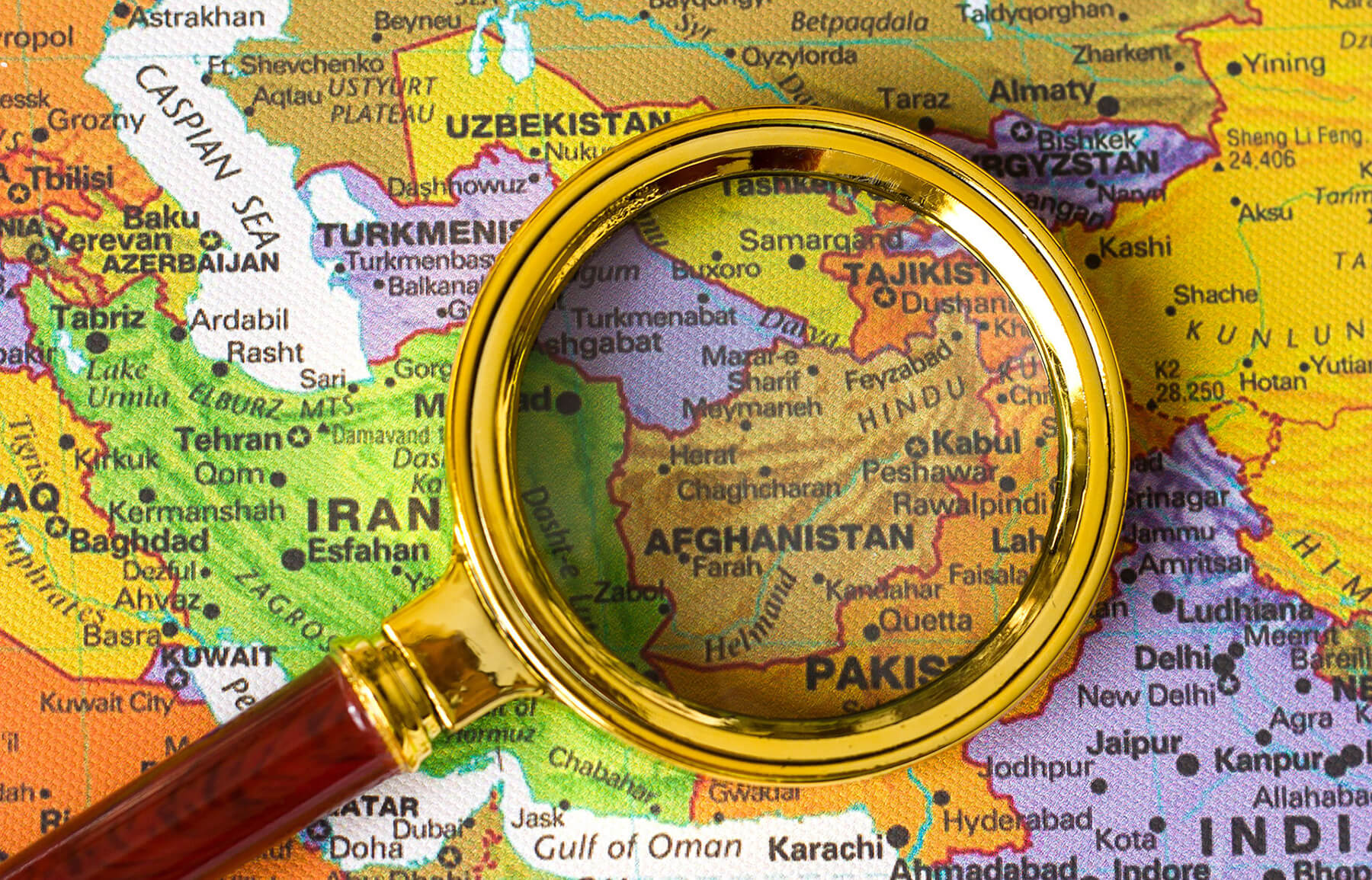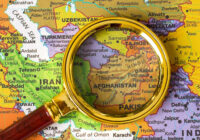As Ukraine dominates headlines, Afghanistan has receded into the background. This has happened before. After the mujahideen wore out the Soviet Red Army, the US forgot about Afghanistan. To be fair, there was a lot going on. The Berlin Wall fell in 1989 and the Soviet Union itself collapsed in 1991. Washington was worrying about thousands of nukes that could go missing instead of the caves of Tora Bora.
In hindsight, this neglect of Afghanistan was unwise. It cost the US much blood and treasure. The Taliban emerged in the 1990s in Pakistan. It took over Afghanistan and ran a barbarous regime, stoning women to death and decapitating people in public. For a while, all these things seemed far away. That changed on 9/11. What happened in Afghanistan did not stay in Afghanistan. Those attacks on the Twin Towers and the Pentagon still haunt the US.
History is repeating itself. Yet again, Europe is in turmoil. Conflict in Ukraine has proved all-absorbing for Washington. After 20 years, the Taliban are back in power in Afghanistan. They are battle-hardened, more resourceful and savvier than in their earlier avatar. They are no less dangerous though.
In much of the Islamic world, anti-American and anti-Western sentiment runs high. The Taliban are seen as the David that has brought down a Goliath. In Central and South Asia, the Taliban have particular appeal. A new generation of jihadists are looking to the Taliban for inspiration now that the Islamic State no longer has the same allure as it once did. Even as many countries engage with the Taliban, they present a growing threat to global security just as they did in the 1990s.
The Taliban Inspire Pakistan’s Terror Factories
In the eyes of fundamentalist Islamists, the Pashtun-led Taliban have a new halo. They are seen as successors of the mujahideen that brought the Soviet Union to its knees. Now, the Taliban have humbled none other than mighty Uncle Sam. They are Allah’s chosen soldiers, role models for terror groups around the world and especially in South Asia.
Already, Pakistan is feeling the pain of creating a Frankenstein’s monster. The Tehrik-e Taliban Pakistan (TTP), an alliance of militant networks formed in 2007 and inspired by the Taliban, has been attacking Pakistani soldiers, policemen and civilians for a while. Most recently, they reportedly ambushed a military convoy near the Afghanistan border, killing seven Pakistani soldiers. In retaliation, the Pakistani military has carried out airstrikes in eastern Afghanistan on what they deemed to be TTP sanctuaries. Witnesses say dozens of people, including women and children have died. Many more have been injured. Instead of solving the terror problem afflicting Pakistan, this will add fuel to the fire and provide the TTP with fresh recruits.
The Taliban Use Violence Against Women as a Bargaining Chip
Pakistan finds itself in a bind. It has been running with the hares and hunting with the hounds for much too long. During the War on Terror, Pakistan sold itself to Washington as a partner, even if an unreliable one, that would contain terror in both Afghanistan and Pakistan that is often referred to as AfPak region. At the same time, Pakistan’s Inter-Services Intelligence (ISI) kept supporting the Taliban and other anti-India jihadi groups such as Jaish-e-Mohammed and Lashkar-e-Taiba.
This double game along with the failure of the Pakistani state to provide basic services such as health and education has fostered a desperation among a fast-growing population. About 64% of the population is under 30. Madrassas, hardline Islamic schools, have stepped in to fill the void. About 17,000 of them provide free education to nearly two million students with even five-year-olds memorizing and reciting the Quran without understanding Arabic. The 9-11 Commission’s report found Pakistani madrassas were “incubators for violent extremism.”
Graduates of these madrassas have long had their uses for Pakistani elites. From 1947 itself, these elites have been paranoid about the lack of strategic depth vis-à-vis India and ethnic nationalism in its western provinces. When Bangladesh won its independence in 1971, these fears were exacerbated. Since then, Pakistan has doubled down on intolerant political Islam while failing to tackle endemic poverty and endemic corruption. With a misplaced sense of both paranoia and grandeur, Pakistani elites have packed off poor graduates of madrassas to fight jihads even as they have sent their own children to Dubai, London and New York. Now, some of these madrassas graduates are turning against the Pakistani state itself.
Trouble Brews in Rest of South Asia
The Taliban are inspiring many Indian Muslims too. Most people in the West do not realize that the ideology that inspires the Taliban comes from India. When the British crushed the 1857 Indian uprising and abolished Mughal rule in 1858, this caused dismay among many traditional Muslims. Some of them founded the Darul Uloom Deoband seminary in 1866 to the northeast of Delhi. They taught their students that Indian Muslims would be able to resist British rule by returning to core principles of Islam. This puritanical Deobandi ideology spread in British India and later in Pakistan as well as Afghanistan. In reent years, it has outcompeted the tolerant Persianate Sufi tradition of Islam in the subcontinent, which has peacefully coexisted with indigenous Indian spiritual traditions for centuries.
The Pashtun-led Taliban Could Break Apart Both Afghanistan and Pakistan
In multireligious and multiethnic India, Deobandi clerics are celebrating the victory of the Taliban over “the defeat of a superpower such as the US.” They point to the collapse of the more numerous American-trained Afghanistan National Security and Defense Forces (ANDSF) as proof of the special powers of the Taliban. Many Muslims resent India’s ruling Hindu nationalist Bharatiya Janata Party (BJP), which believes in reclaiming India’s pre-Islamic heritage. Some BJP leaders use inflammatory anti-Muslim rhetoric. Some opposition leaders fan the flames of Muslim insecurity to win votes. Loose talk by the likes of Shashi Tharoor who writes about Indian Prime Minister Narendra Modi’s “anti-Muslim jihad” gives great propaganda material for jihadists.
Quickly forgotten is the fact that Modi’s BJP government is sending 50,000 tons of wheat to a Taliban-occupied Afghanistan. The reality for Indian Muslims might not be rosy but it is not as grim as Tharoor paints it to be. Being Ahmadi in Pakistan or Hazara in Afghanistan is far more hazardous. The Pakistani parliament decreed that Ahmadis were non-Muslims as early as 1974 and this Islamic sect has faced increasing persecution since. Hazaras, a Shia ethnic group, have consistently been targeted by the Taliban who are fundamentalist Sunnis. Together, extreme Hindu rhetoric and Tharoor’s scaremongering are strengthening the hands of Islamic fundamentalists inspired by the Taliban. Muslim parents have been agonizing over the radicalization of their children, a trend that could accelerate with the victory of the Taliban.
Fundamentalist Islamists are also on the rise in Bangladesh, Maldives, Sri Lanka and even Nepal. Except for Bhutan, Islamic fundamentalism has been a threat to peace and stability of all nations. Bangladesh’s syncretic Muslim tradition has been under threat for decades thanks to the rise of extremism. Maldives is experiencing what The Economist has called “an ominous rise of intolerant Islam” thanks to Saudi money flowing into and Salafist ideology taking over its mosques. Once Saudi-funded, the Taliban inspires many in the Maldives.
Sri Lanka’s marginalized Muslim community has proved to be a fertile breeding ground for fundamentalist Islamic ideologies. In Nepal, Muslims have become “active participants in the larger global movement of Sunni revival,” adding greater instability to an already turbulent nation. Such fundamentalist Sunni movements are energized by the Taliban’s victory over the US.
Unfortunately, South Asian states are unprepared for this rising Talibanization of Islam. They even lack critical political and strategic insights into the implications of the victory of the Taliban. Islamic fundamentalists from around the world and especially from South Asia will inevitably come to Afghanistan for the finishing school of terror. This has happened before. In the 1980s, young Arab Sunni ideologues and fighters such as Abdullah Azam, Ayman al-Zawahiri and Osama bin Laden came to fight jihad in Afghanistan.
Then as now, Washington took its eye off the ball in this part of the world. After all, they had to sort out post-Soviet Eastern Europe and the successor states to the Soviet Union itself. The ball though, as the late Congressman Charlie Wilson apocryphally said, “keeps on bouncing,” and is likely to hit us in the face before too long.
The views expressed in this article are the author’s own and do not necessarily reflect Fair Observer’s editorial policy.
Support Fair Observer
We rely on your support for our independence, diversity and quality.
For more than 10 years, Fair Observer has been free, fair and independent. No billionaire owns us, no advertisers control us. We are a reader-supported nonprofit. Unlike many other publications, we keep our content free for readers regardless of where they live or whether they can afford to pay. We have no paywalls and no ads.
In the post-truth era of fake news, echo chambers and filter bubbles, we publish a plurality of perspectives from around the world. Anyone can publish with us, but everyone goes through a rigorous editorial process. So, you get fact-checked, well-reasoned content instead of noise.
We publish 2,500+ voices from 90+ countries. We also conduct education and training programs
on subjects ranging from digital media and journalism to writing and critical thinking. This
doesn’t come cheap. Servers, editors, trainers and web developers cost
money.
Please consider supporting us on a regular basis as a recurring donor or a
sustaining member.
Will you support FO’s journalism?
We rely on your support for our independence, diversity and quality.







Comment